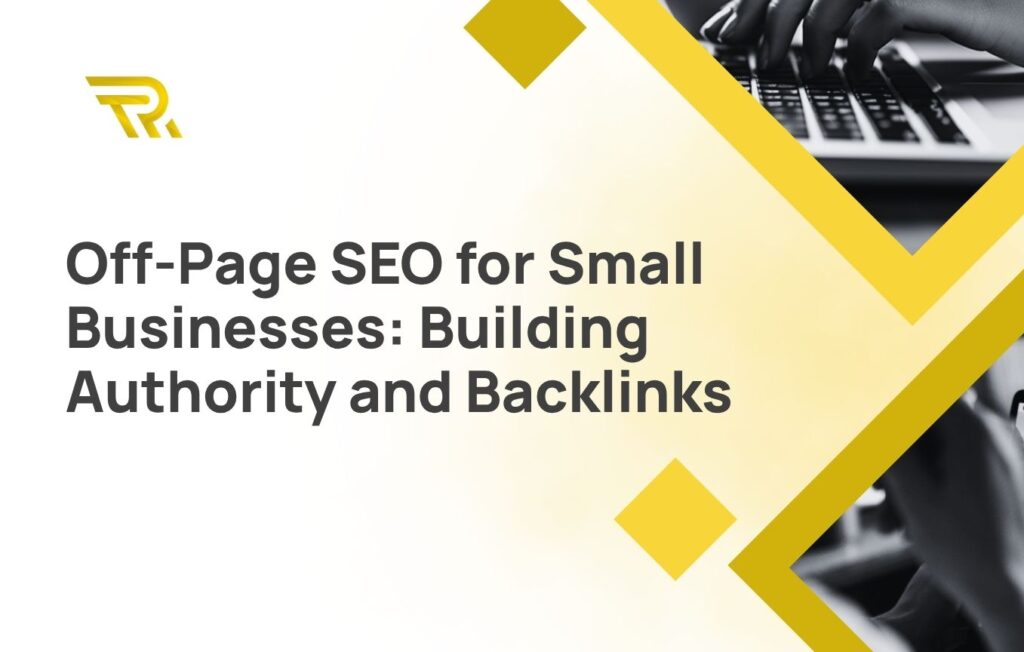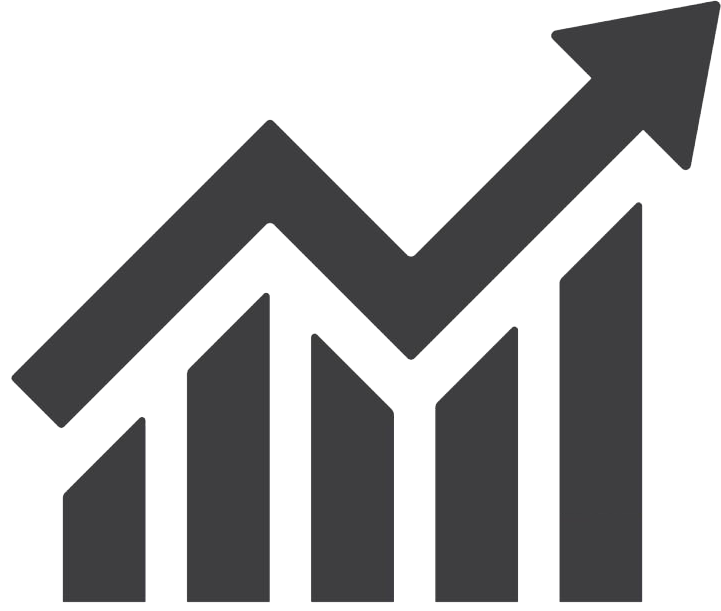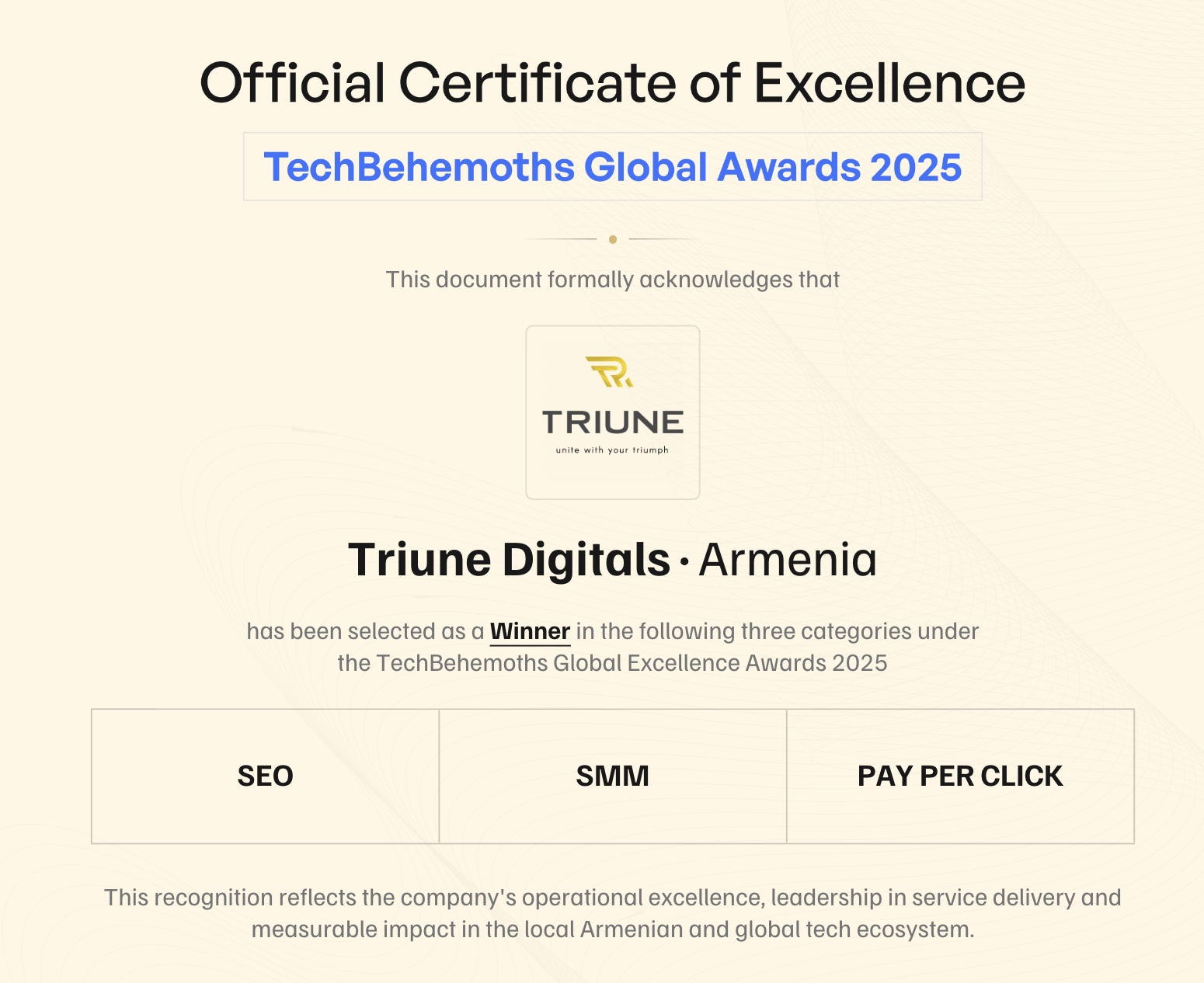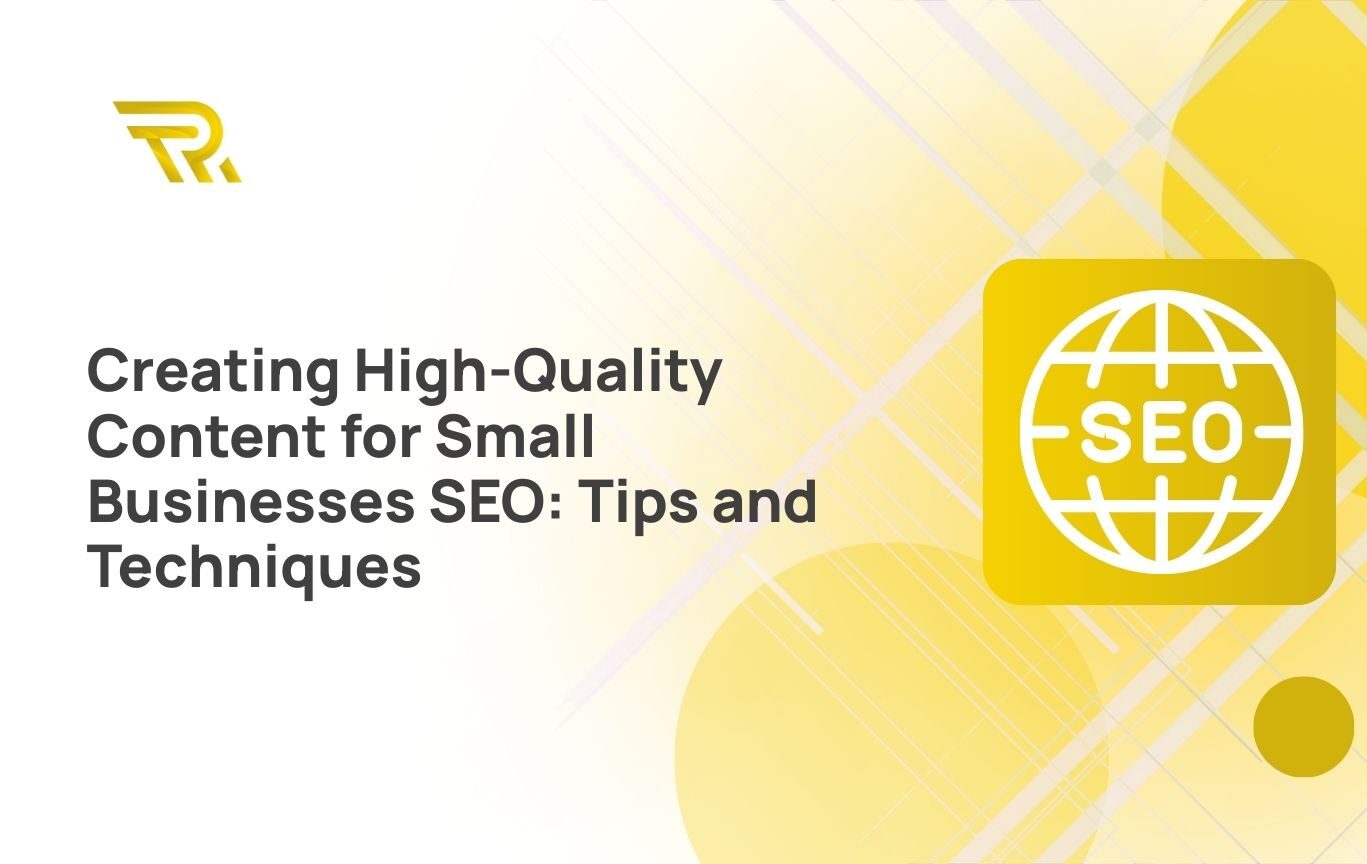If you’re running a small business and want to make a significant impact in the online world, then understanding the world of off-page SEO is crucial. This strategy goes beyond your website and is vital for boosting your search rankings, visibility, and credibility. In this guide, you’ll discover the world of off-page SEO and understand how it can be pivotal for your small business. We’ll show you how off-page SEO can expand your reach and help you build a strong online brand presence. So, let’s get started!
Key Takeaways
Off-page SEO is pivotal for small businesses. It enhances visibility, credibility, and trust, leading to increased organic traffic and conversions.
Quality backlinks signal to search engines that your content is trusted and authoritative, boosting your website’s ranking.
Website authority is measured by factors like quality backlinks, content excellence, relevance, social media engagement, and user experience.
What is Off-Page SEO?
Before delving into the specifics of building authority and acquiring backlinks, it’s essential to understand the concept of off-page SEO. Unlike on-page SEO for small businesses, which involves optimizing elements within your website, off-page SEO focuses on external factors that influence how search engines perceive your website’s relevance, trustworthiness, and authority. These factors include backlinks from reputable websites, social media engagement, online reviews, and more. The ultimate goal of off-page SEO is to enhance your website’s credibility and authority in the eyes of search engines, leading to better search rankings and increased organic traffic.
Here’s the key idea: The more authoritative a website is, the more links it’s likely to have from other reputable websites. This is crucial because search engines have moved beyond just relying on keywords to rank websites. Now, acquiring high-quality backlinks is a must for SEO success.

Image source: https://www.njlocalmarketing.com/whats-the-difference-between-on-page-and-off-site-seo
Why is Off-Page SEO important for Small Businesses?
Google relies on more than two hundred factors to determine website rankings, with off-page SEO being one of the top 20 factors. When two websites have comparable on-page SEO quality, off-page SEO steps in as the deciding factor. It essentially serves as a signal to search engines about how the wider online community perceives your website. Off-page SEO plays a pivotal role in influencing your website’s position in the Search Engine Results Pages (SERPs).
Effective SEO services encompass both on-page and off-page strategies to ensure that your website not only offers valuable content but also earns the trust and credibility necessary to rank higher in the competitive landscape of search engine results.
What’s the Method Google Uses to Assess Links?
Google uses a complex algorithm to assess links on the web in order to determine the quality and relevance of websites and web pages. This algorithm plays a crucial role in ranking web pages in its search results. The primary method Google uses to assess links is called PageRank, although it’s worth noting that Google’s algorithms have evolved over time, and they use a variety of factors beyond PageRank to evaluate links and websites. Here’s an overview of the key methods Google uses to assess links:
PageRank
PageRank is an algorithm developed by Larry Page and Sergey Brin, the founders of Google. It assigns a numerical value, known as PageRank score, to each web page based on the quantity and quality of links pointing to it. Pages with higher PageRank scores are considered more authoritative and are often ranked higher in search results. PageRank operates on the principle that a link from a reputable website carries more weight than a link from a less reputable one.
Anchor Text
Google pays attention to the anchor text of links. The anchor text is the visible text in a hyperlink. Descriptive and contextually relevant anchor text helps Google understand the content and context of the linked page. Over-optimized or unnatural anchor text can be a signal of manipulation and may lead to penalties.
Relevance
Google wants links to make sense in four ways: from one domain to another, from one page to another, from a domain to a page, or simply from a link to a page. Links should be on web pages that match the topic. For example, if you’re a personal injury lawyer, it wouldn’t make sense to link to a page about restaurants unless it’s relevant and ties into a specific case study.
Website Diversity
Search engines prefer when your website has links from various sources. It’s smart to get links from different authority blogs, websites, magazines, directories, and more. This diversity signals credibility.
Link Placement
Google cares about user experience. So, links should seamlessly fit into your website’s content. Irrelevant links, like those crammed into sidebars or footers just for ranking, aren’t a good idea.
Human Value
The main goal of search engines is to provide users with valuable content. When other websites link to yours, it should be because your information complements and supports their content. This is what we call the human value factor. Your backlinks should show you understand your audience and provide them with unique value.
Uniqueness
Quality links from authoritative sources that mention your brand are golden. Forums and unique events where your brand is featured are highly valuable, especially if your competitors aren’t present.
NoFollow and DoFollow Links
Google differentiates between “nofollow” and “dofollow” links. Nofollow links have an HTML attribute that instructs search engines not to pass authority or PageRank to the linked page. Dofollow links, on the other hand, pass authority. Google considers both types of links but gives more weight to dofollow links.
How Off-Page SEO Link Building Actually Works?
Link building is an advanced off-page SEO technique. It involves three main kinds of backlinks, each obtained in a different way: natural links, manual links, and self-made links.
Natural Links
Natural links happen on their own, without any involvement from the website owner. For instance, if a blogger writes about the latest fashion trends and links to your clothing store because they believe it’s helpful for their readers, that’s a natural link.
Manual Links
Manual links are acquired intentionally by encouraging customers, influencers, and publications to link to your website when they share your content. These links take time to build because they rely on building relationships and establishing your brand’s credibility. Influencer marketing, which may involve paid or mutual arrangements, is one way to get manual links.
Self-Created Backlinks
Lastly, there are self-created backlinks, which are considered unethical. These links are made by inserting questionable backlinks in online directories, forum posts, blog comments, or press releases with optimized anchor text.
Search engines like Google don’t approve of self-created backlinks because they aim to deceive search engines into thinking your website content is valuable when it may not be. In fact, Google has been known to penalize websites that engage in such shady tactics.
What Is Link Juice?
It’s not just about having any old backlinks; they also need to have a certain level of value, which people often call “link juice.” As we mentioned earlier, not all links on the internet are the same.
Link value is influenced by a few things like how popular the website is, how closely the link is related to the website it’s pointing to, how trustworthy the website is, and how respected the website that’s linking to you is.
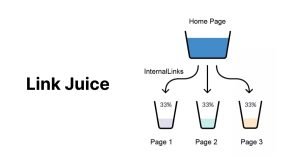
Image Source: https://www.weetechsolution.com/blog/link-juice-seo
The best way to build these valuable links is by building good relationships with websites and blogs that make sense in your industry. These relationships aren’t just helpful for getting links. If your brand is genuine, you’ll also create fans and supporters for your small business.
Sometimes, you might even connect with PR companies, journalists, and writers who are always looking for new trends, products, and valuable information in your industry.
Different Types of Backlinks
Certain backlinks can give your website more visibility, especially if you want it to show up high in search results. Knowing about these different types of backlinks will help you create links that boost your off-page SEO.
Internal Links
These links connect different pages within your own website. They help establish a clear structure for your website and make it easier for search engines to understand and rank your pages. For instance, if you’re a shoe seller, you might link a product page to a relevant blog post or connect your “news” section to a new shoe collection category page.
Authority Links
These links are like gold in the world of link building. They come from well-established, trusted websites in your niche that have earned the respect of search engines due to their age, quality, and size. The best way to get these links is by creating top-notch content and running a strong PR (public relations) campaign. For instance, if you’re a real estate developer and Realtor Magazine links to your in-depth article on real estate trends, you’ve hit the jackpot.
External Links
External links point to pages or websites that are not your own. While you wouldn’t want to use them excessively on your main website because they can take visitors away from your site, they can be valuable in blog posts or other content when they add value or support your topic. For instance, if you’re a fashion retailer, you might create a Q&A blog with a well-known stylist and include a link to their website to enhance the content.
Off-Page SEO Techniques
Building Quality Backlinks
One of the cornerstones of off-page SEO is establishing a network of quality backlinks. These links, originating from reputable and relevant websites, signal to search engines that your content is trusted and relevant, ultimately positioning your website as an authoritative source. The more authoritative and credible the linking sources, the more positively your website’s ranking may be affected. These inbound links, originating from respected external websites, hold the power to significantly enhance a website’s credibility and search engine rankings.
White-hat link building is a proper way to get backlinks from trusted websites. It follows Google’s rules and often involves reaching out or using PR strategies.
Building quality backlinks emerges as a fundamental pillar that propels small businesses towards online authority and enhanced visibility.
Online Mentions and Citations
When your business is mentioned or cited on other websites, especially those within your industry, it bolsters your credibility and visibility. Being featured in news articles, guest posts, and industry directories can contribute to enhancing your online reputation and, consequently, your search rankings.
Content Marketing
Content marketing is important for Off-page SEO. Creating and sharing high-quality content for SEO not only showcases your expertise but also opens avenues for guest posting on other reputable platforms. By contributing insightful articles, you can tap into new audiences while establishing yourself as an industry thought leader. Publishing great content is an effective way to earn backlinks and gain attention.
The most commonly used channels to distribute content to boost off-page signals:
- PR
- Social Media
- Influencer Marketing
- Guest Posting
PR
PR initiatives generate high-quality backlinks through media coverage and collaborations, fortifying your website’s credibility and elevating its search ranking. These efforts also sculpt your brand’s industry authority, solidifying its expertise and trustworthiness, while brand mentions from PR activities contribute to a robust online presence that influences search visibility. Moreover, PR plays a pivotal role in reputation management, combating negative content and sculpting a more positive online image that harmonizes with off-page SEO objectives.
Social Media
Social Media Marketing plays a pivotal role in enhancing a brand’s online presence, authority, and engagement. Sharing valuable content, engaging with users, and leveraging relevant hashtags heighten the chances of your brand being discovered by a broader audience, indirectly impacting search visibility.
Likes, shares, comments, and retweets on social media content are considered social signals. These signals indicate content relevance and engagement, contributing to improved search engine rankings.
SMM initiatives often lead to brand mentions and interactions, some of which can result in backlink opportunities. These backlinks, even if not SEO-focused, contribute to a diverse link profile that enhances off-page SEO efforts.
Influencer Marketing and Backlinks
When it comes to the kind of content influencers create, like blogs, it can give your small business website valuable backlinks, especially if the influencer has lots of followers.
But that’s not all. Influencer marketing also helps brands reach new markets, get more customers, and make more people aware of their products or services. According to Marketing Profs, if brands have genuine relationships with influencers, they can make up to 11 times more money compared to regular advertising. The key is to pick an influencer who really matches your brand so that it feels real to potential customers.
Guest Posting
Guest posting allows you to secure high-quality backlinks from authoritative external sources.
When you contribute guest posts to respected websites in your niche, you position yourself as an industry expert. This authority is recognized by both audiences and search engines, impacting your brand’s credibility and visibility.
Guest posting enables you to align your content with specific niche topics. This relevance is favored by search engines, further enhancing your content’s value and potential ranking.
Engaging guest posts can drive organic traffic to your website, introducing new visitors who are genuinely interested in your content or offerings.
Effective guest posts naturally earn backlinks as others reference and share your valuable insights. These earned links are highly regarded by search engines.
Local SEO
Local SEO is all about making sure that when people search for products or services you offer online, your brick-and-mortar business shows up on Google Maps and in search results.
Effective local link-building strategies, such as collecting positive customer reviews and securing mentions in local directories, play a vital role in enhancing your business’s online presence and attracting potential customers in your area.
The simplest way to make your local SEO better is by setting up a Google My Business account, collecting positive reviews from customers, getting mentioned in different places (called citations), and listing your business in trusted directories. It’s worth mentioning that both citations and having a Google My Business listing are a bit like getting backlinks for your business.
When your business is well-optimized for search engines, it increases the chances of ranking higher. This, in turn, means more people will click on your website and find out about your business, which can lead to even more natural backlinks. A good SEO strategy takes all these things into account to help your business succeed online.
Online Reviews and Ratings
Encouraging positive reviews and ratings on platforms like Google My Business for small businesses, Yelp, and industry-specific review sites not only enhances your reputation but also contributes to your local SEO efforts.
What Is the Difference Between On-Page, Technical, and Off-Site SEO?
Now, let’s clarify the different types of SEO:
On-Page SEO: This is about optimizing the content on your website, like individual web pages and landing pages. It tells search engines what your content is about and how relevant it is to users. It includes tasks like creating relevant content, doing keyword research, and optimizing things like SEO-friendly URLs, headlines, HTML tags, and images. Always keep user experience in mind because Google values it highly.
Technical SEO: Technical SEO deals with all the non-content elements of your website, like its structure and layout. It ensures your website meets the technical requirements for search engines to crawl and index it efficiently. It involves improving your site’s backend structure and addressing things like site speed, mobile-friendliness, indexing, crawlability, site architecture, structured data, and security.
If you’re new to SEO, our technical SEO guide can be immensely helpful in understanding the essential technical aspects of optimizing your website for search engines.
Final Thoughts
High-quality backlinks are crucial in off-page SEO. Executing successful tactics has the potential to implement effective strategies that can boost your search rankings, online presence, and organic traffic.
Contact us to obtain a successful off-page SEO strategy for your small business!
FAQs
How does off-page SEO benefit small businesses?
Off-page SEO enhances a small business’s online reputation through valuable backlinks and brand mentions. This, in turn, increases search engine visibility, drives organic traffic, and fosters customer trust.
Is there a timeline for seeing results from off-page SEO efforts for small businesses?
Off-page SEO is a long-term strategy that requires patience. While some results may be noticeable in a few months, the full impact becomes more apparent as backlinks accumulate and authority grows.
Is off-page SEO a one-time effort, or does it require ongoing attention?
Off-Page SEO is an ongoing effort. Building and maintaining backlinks, engaging on social media, and fostering brand mentions all contribute to long-term benefits.

